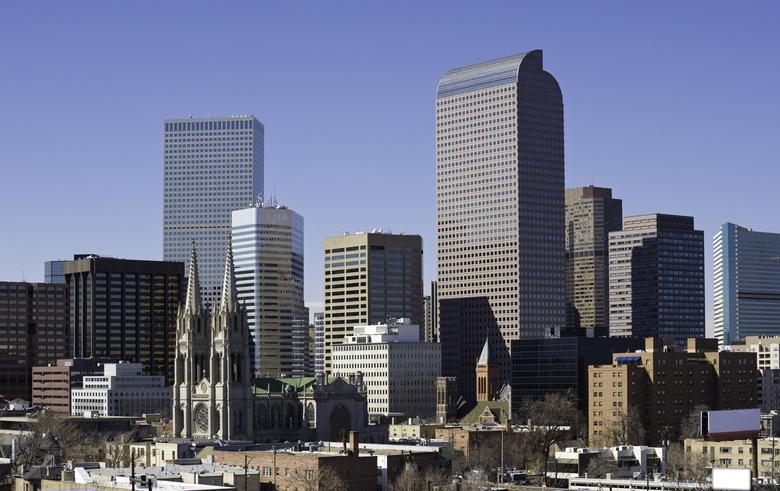What Planting Zone Is Denver, Colorado?
No matter where you live, planting the right plants is key to successful yards and gardens. It is essential for the plants to fit the climate's temperature, rainfall, humidity, frost dates, and other environmental factors. Use the hardiness zone along with area climate information and suggestions from local garden centers or your county extension office to pick the optimal plants to grow in Denver. From flowers to trees to vegetables, you're sure to find something that will thrive in Denver.
Tip
Denver is in U.S. Department of Agriculture plant hardiness zones 5b through 6a, depending on the specific location or ZIP Code. The unique nature of the city's landscape along with its climate places Denver in this zone range, which is slightly warmer than the surrounding area.
What Are Planting Zones?
Planting zones, also known as hardiness zones, were developed by the United States Department of Agriculture (USDA) to map out the country to show optimal growing zones for different types of plants according to temperature. There are 13 zones plus subcategories. Zone 1 is the coldest, with temperatures dropping as low as -60 degrees Fahrenheit, and zone 13 is the warmest, with lows above 65 F.
These zones do not take other factors into account. While it's important to consider your hardiness zone when planting, it is essential to look at other information as well, such as frost dates and precipitation. Knowing some basics about gardening will help you to help your yard look its best.
Denver's Hardiness Zones
The Denver area hovers between hardiness zone 5b and 6a. This gap between 5b and 6a indicates a 5-degree span. Colorado's zones can fall anywhere from hardiness zone 3 to 7, with factors including elevation and how far north the area is located. Even other elements, like high-rise buildings and increased amounts of concrete, play a role.
What's Different About Denver?
Denver's city skyline and concrete use are part of what makes this pocket of Colorado a bit warmer than others around it. When you examine the maps of Colorado's hardiness zones, you'll notice a small pocket of warmer temperatures around Denver. While this may not seem like a significant difference, it could affect plants that grow in the area.
Denver's growing season (the time between the last spring frost and the first winter frost) is typically around 150 days. This does not mean you can grow only during that time, but it helps gardeners understand what plants can be growing outside then and which ones cannot. Frost dates are key considerations for growing annuals and vegetables. You can also look into using raised beds and pop-up greenhouses to lengthen the growing season. When choosing perennials, you want to pay close attention to the hardiness zone, as this tells you whether or not the plant can survive a typical winter.
Tips for Growing in Denver
By any measure, Denver and all of Colorado has a dry climate. The high elevation and numerous sunny days combine to provide unusually intense sun exposure, more so than you find in most other parts of the country. All of this means that the best plants for Denver and the surrounding areas are drought- and heat-tolerant. This goes double for any planting location that is exposed to the hot afternoon sun, since almost every summer day in Denver includes a hot, sunny afternoon and evening.
Native plants are ideal for perennials and ornamentals. Popular trees include narrowleaf cottonwood, quaking aspen, and the majestic Colorado blue spruce. Flowering deciduous trees like crabapple and other fruit trees can grow in the Denver area, but don't be surprised if a heavy snow in late spring takes out the new blooms — or breaks the tree's branches.
For perennial flowers, think cosmos, echinacea, or the Colorado state flower, the columbine. Lilac shrubs thrive here, as do wild roses, junipers, and many types of hardy ornamental grasses. Yuccas are a favorite for waterwise Denver gardens, and they provide interest year round. For vegetables, Denver has a fairly long growing season for a high-elevation area, but the intense sunlight is hard on many food crops. Look for plants that love heat, like tomatoes, zucchini, and squash as well as mint and other perennial herbs. Cool-season crops like kale, spinach, and lettuce do well if you grow them early or late enough in the season (they can't take the dog days of the Denver summer).
